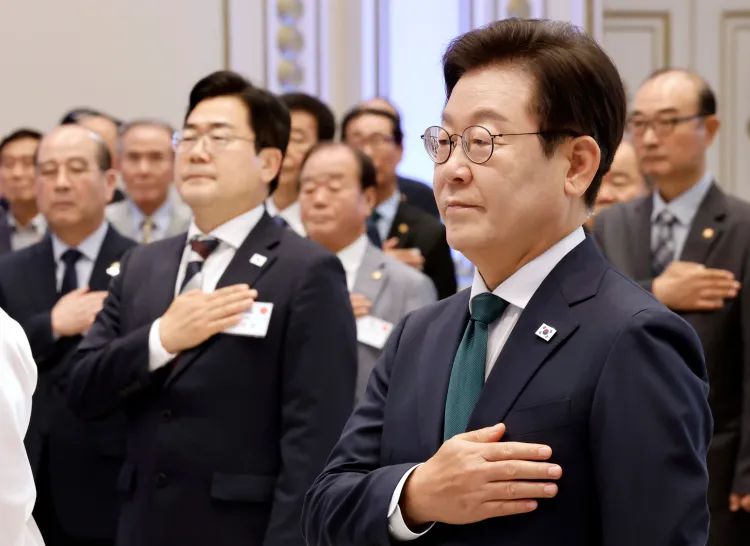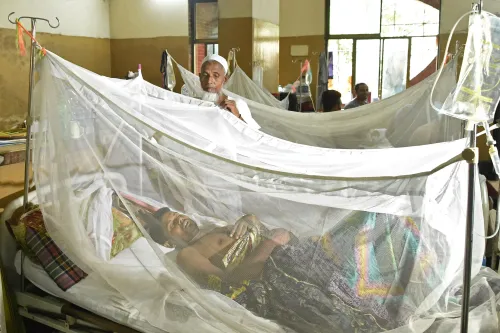How Will South Korea's President Address the Grievances of Wartime Victims?

Synopsis
Key Takeaways
- President Lee Jae Myung commits to restoring victims' honour and dignity.
- Up to 200,000 women were forced into sexual slavery during WWII.
- Only six survivors remain in South Korea.
- August 14 is a memorial day for the victims.
- Lee emphasizes the need for justice and human rights.
Seoul, Aug 14 (NationPress) South Korea's President Lee Jae Myung pledged on Thursday to tackle the enduring grievances of Korean women who were subjected to sexual slavery by the Japanese military during World War II. He emphasized his commitment to restoring the victims' honour and dignity.
Historians estimate that as many as 200,000 women, primarily from Korea, were forced into sexual servitude in front-line Japanese brothels during the conflict when Korea was under Japanese colonial rule.
These sex slaves, referred to as “comfort women”, have seen their numbers dwindle as the last surviving victims age, with only six remaining in South Korea, according to reports from Yonhap news agency.
On the memorial day commemorating these victims, Lee remarked that the liberation of the Korean Peninsula from Japan’s colonial domination 80 years ago remains “incomplete until the truth is set straight.”
“While this year marks the 80th anniversary of our liberation, the comfort women victims still face a lack of freedom and peace due to the unresolved nature of this issue, even decades later,” Lee shared on Facebook.
Designated in 2017, the Aug. 14 memorial day honors the late Kim Hak-sun, who was the first to publicly testify about her experiences as a victim on August 14, 1991.
“It was Kim’s bravery that stirred the conscience of the international community and initiated a wave of solidarity,” he remarked.
He committed to making exhaustive efforts to “fully restore the honour and dignity” of the victims, envisioning a nation where “human rights are common sense.”
Aug. 14 also coincides with the eve of Liberation Day, which commemorates the end of the Japanese colonization of Korea from 1910 to 1945.









